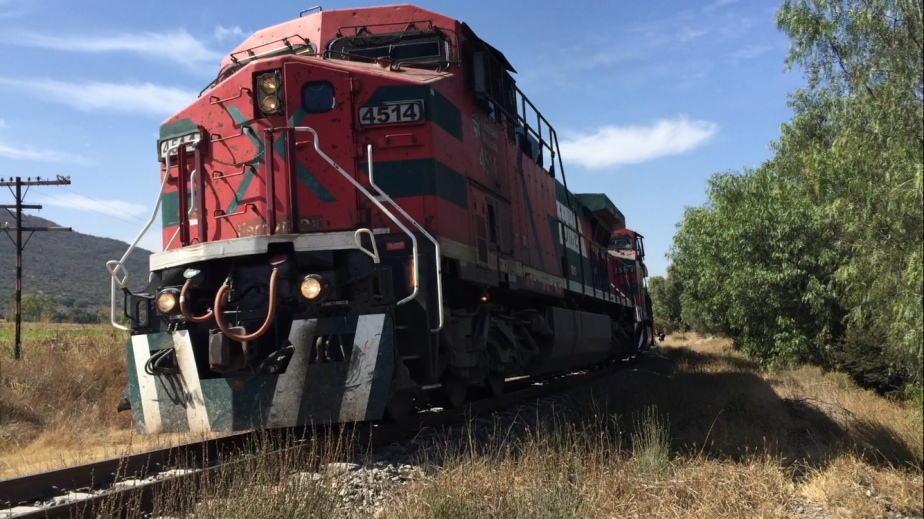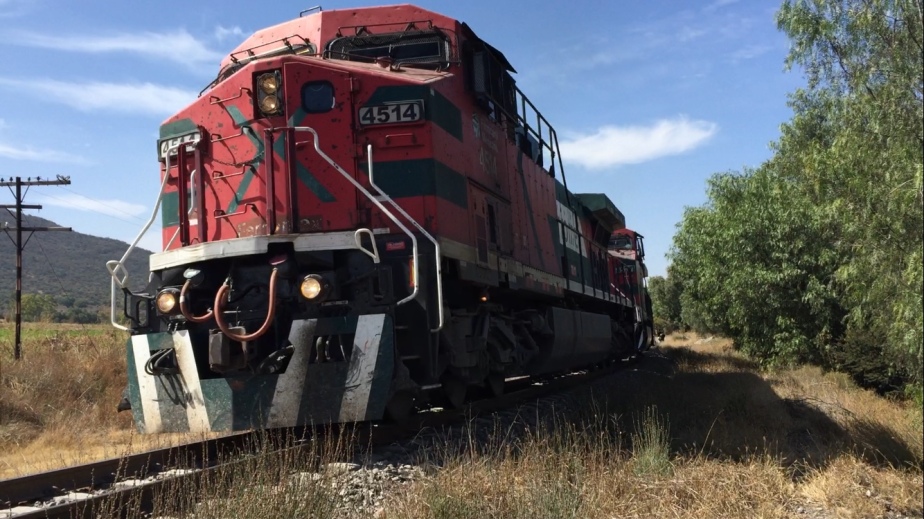
At the beginning of December, my students and I participated in a march in solidarity with migrants in transit through Mexico. We walked 20 miles along the train tracks from Huehuetoca to the Methodist church in Apaxco, joining two migrants from Honduras: a father and his 16 year old son.
We started out well, and I naïvely thought it wouldn’t be as difficult as I had imagined. After awhile, though, my backpack started to weigh on me and the sun grew stronger. I slipped on a greasy part of the tracks. I was okay (just covered in grease), but my water got carried off by someone who had stopped to help. My boots felt tight. I was thirsty. I began to wonder if I would make it the rest of the way. We were walking such a small percentage of the journey from Mexico’s southern border to its northern border, yet we were exhausted.
I felt tired and sweaty and thirsty, and as I observed homes and restaurants off in the distance, I felt far from everyday Mexican life. My anger grew. No one should have to live this way, traveling clandestinely and running into thieves, drug cartels, gangs, and exploitative government agents, but U.S. and Mexican immigration policies make it so. I felt in my body a little of what migrants feel every day, and that cemented my frustration with how we treat other people and what our governments have done to do cause this situation. I felt that pain and fatigue in my body, and I won’t soon forget it.
We walked north, towards Mexico’s northern border. The goal is the U.S. for most and Mexico’s industrial northern cities for some (they say there is plenty of work in cities like Monterrey). As we walked, I thought of the U.S. at the end of this 40-day journey—the U.S. on the other side of the border marked by walls and the unforgiving Sonoran Desert. The U.S., my home. I thought of my family waiting for me for Christmas. Some of the people that walk the train tracks towards the north also have family in the U.S. They also think of the U.S. as home. They walk day in and day out to get back there.
Before we began our trek, I had received good news. Isaac, my partner of three years, had gotten approved for a tourist visa to travel to the U.S. After two previous failed attempts and a few years of hoping, this time he had finally been approved. I felt ecstatic—he would finally know my home and my family—and yet on this walk it felt bittersweet. As we walked kilometer after kilometer with our faces towards the U.S., we knew in a few weeks we would fly there together, but we also knew that we couldn’t take along our new friends. Why were we more deserving of a safe travel than them?
When it came time to fly to the U.S., I also thought of my friends from Deportados Unidos en la Lucha. They go to the airport to meet the three planes that arrive every week filled with people getting deported from the U.S.. I was at the airport to fly in the opposite direction. My friends are deportees who call the U.S. home (or a home) and who have family still there who miss them every day. Why am I more deserving of a trip back home than them?
The truth, of course, is that I’m not more deserving. We’re in this situation because of the unequal political and economic power distribution between the Global South and the Global North. We’re in this situation because of xenophobia and racism and racial profiling. Therefore, we can and should give a blanket to a migrant in transit and offer work to a deportee, but we also have to work to dismantle our unjust systems.

Amanda Cherry
GMF International, Class of 2016-2018
Mexico

Thank you Amanda! That’s a great example. If all other people (including policy makers) could try to Imagine the hardships our fellow humans go through, may be there would be a change in migration policy making, There is still a lot to do. May God hear the voice of his people!
LikeLike